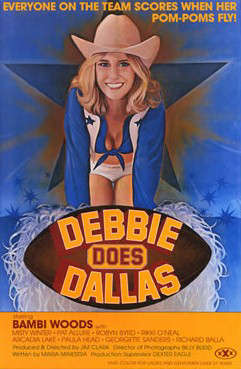In New York v. P.J. Video, Inc., 475 U.S. 868 (1986), the Supreme Court clarified that the First Amendment does not require a higher standard of probable cause under the Fourth Amendment when officials seize books or films.
Video store contented videos had been illegaly obscene
The case arose after New York officials executed a search warrant and seized several films— Taboo, Taboo II, All-American Girls, Debbie Does Dallas, and California Valley Girls — from P.J. Video. The officials then charged P.J. Video and its owner, James Erhardt, with obscenity. P.J. Video and Erhardt filed a motion to suppress the films, contending that they had been seized illegally from the store because there had not been probable cause to believe the movies obscene.
State courts said that there is a higher evaluation standard for warrants for books and films
In New York courts, the defendants successfully argued that the officers acted unconstitutionally. New York’s highest state court — the New York Court of Appeals — declared that “there is a higher standard for evaluation of a warrant application seeking to seize such things as books and films, as distinguished from one seeking to seize weapons or drugs.”
Supreme Court said there was no higher standard for First Amendment concerns
The Supreme Court reversed the state court by a 6-3 vote. Writing for the majority, Justice William H. Rehnquist Jr. reasoned that prior precedent established that “the seizure of films or books on the basis of their content implicates First Amendment concerns not raised by other kinds of seizures.” However, Rehnquist, citing Heller v. New York (1973), found that these concerns did not translate into requiring a “higher standard of probable cause,” because there was a difference between seizing films to destroy them and seizing them to keep them as bona fide evidence in an obscenity prosecution. He also noted that the warrants in this particular case described the films in detail “to permit the magistrate to focus searchingly on the issue of obscenity.”
Dissenters thought Court should have deferred to state courts
Justice Thurgood Marshall — joined by Justices John Paul Stevens and William J. Brennan Jr.— dissented. Marshall wrote that the affidavits did not establish that the films in question met the legal definition of obscenity and that the Court should defer to the fact-finding determinations of the New York courts.
David L. Hudson, Jr. is a law professor at Belmont who publishes widely on First Amendment topics. He is the author of a 12-lecture audio course on the First Amendment entitled Freedom of Speech: Understanding the First Amendment (Now You Know Media, 2018). He also is the author of many First Amendment books, including The First Amendment: Freedom of Speech (Thomson Reuters, 2012) and Freedom of Speech: Documents Decoded (ABC-CLIO, 2017). This article was originally published in 2009.

